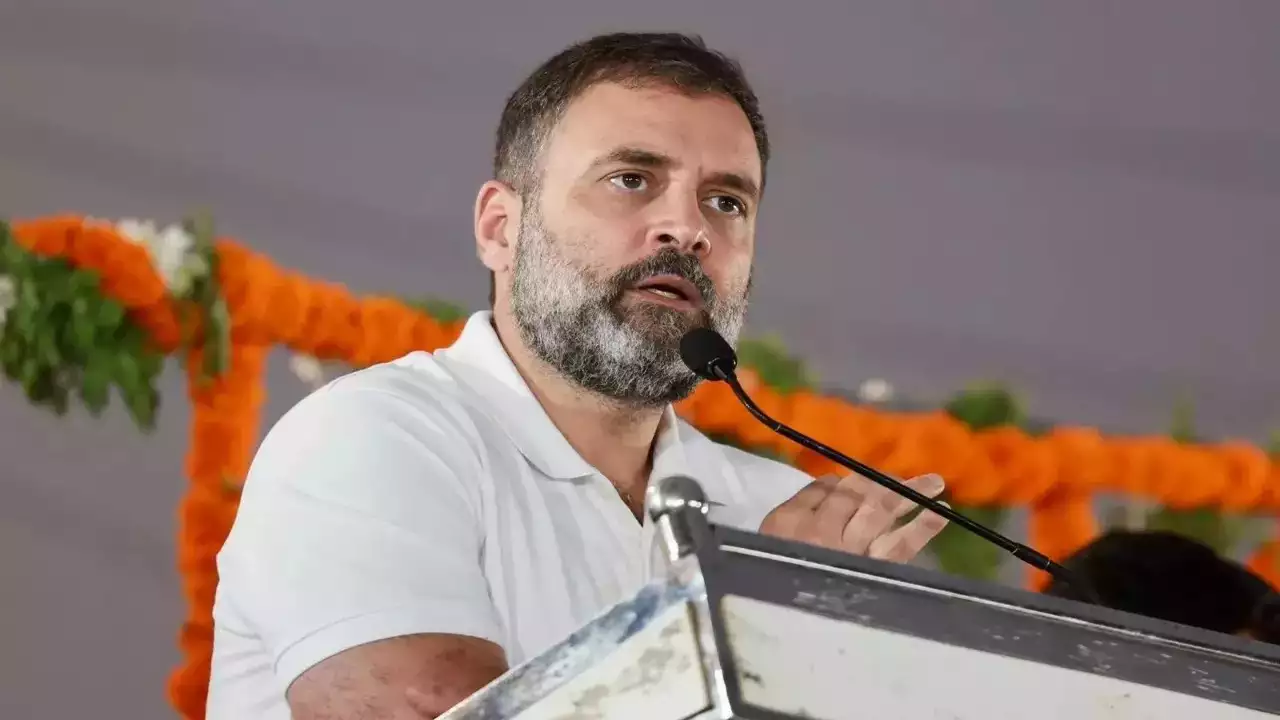Like Maoist communist leaders he is accusing the current government of ias towards big industry, forgetting his own party’s past.
Does Rahul Gandhi prefer to ask questions or listen to them? Why does he change his path and position before the political destination? Rahul Gandhi’s words spoken long ago come to mind on such matters. In reality, he got admission to St. Stephen’s College in Delhi under the sports quota in 1989. But within a year and three months, he left college. Rahul himself said, “I was not given the opportunity to ask questions at St. Stephen’s College; I felt suffocated.” However, the college principal, Valson Thampu, denied Rahul’s allegation. He said, “There were 36 clubs and forums in the college. Rahul did not participate in any of them and was only interested in sports activities.” Anyway, the family then got Rahul enrolled in the Economics Department at Harvard University in the United States. But after a year, he changed colleges again and took admission to Rollins College in Florida, where Rahul Gandhi obtained a bachelor’s degree in International Relations. Later, he went to Trinity College, Cambridge University, UK, to study law. Nowadays, he goes to programs sponsored by some institutions at Cambridge University to deliver speeches before elections and narrate his political efforts with the risks to democracy to selected audiences in India. In the last days of February, he is going to give a speech there, halting his Bharat Nyaya Yatra.
In a democracy, Rahul Gandhi has the right to express his views anywhere in India or abroad. But when journalists ask him questions in India, he often gets angry and starts questioning them himself: “What is your name? What is the name of your boss? Are you from a backward or Dalit caste? How many Dalit secretaries are there in the Modi government?” I don’t know if anyone from any college or the Congress party, or even abroad, has asked him about his caste or about the castes of his senior leaders, from Dr Rajendra Prasad to Dr Shankar Dayal Sharma, Pranab Mukherjee, Motilal Vora, or current advisor Jairam Ramesh, Kanishka Singh, etc. In any case, it seems necessary for Rahul Gandhi to secure backward castes their jobs and provide them with reservation for electoral politics. Moreover, the Congress party, which fought against the corruption of Lalu Yadav’s party in Bihar and Mulayam Singh Yadav’s party in Uttar Pradesh for decades, is now forming alliances to save face in some of its election constituencies. Rahul is showing his own uniqueness. Rahul Gandhi had ridiculed the legal proposals brought by the Manmohan Singh government for electoral politics at a journalist conference, which were brought by the Manmohan Singh government to address the issue of reservation.
How many years could Vishwanath Pratap Singh, who rebelled against Rajiv Gandhi and Congress to become Prime Minister and tried to be a messiah for the backward classes by implementing the recommendations of the Mandal Commission, remain in power? How much benefit is the Yadav family or Mayawati gaining from the backward Yadav and Dalit vote banks in Bihar and Uttar Pradesh in recent years? Ultimately, political parties receive votes based on the programs and implementation of their social and economic development for all classes, castes, and communities.
As for reservation for backward classes, Rahul Gandhi’s father, former Prime Minister, the late Rajiv Gandhi was a staunch opponent of increasing reservation provisions. While in power, in a long interview on March 2, 1985, he told me, “I argue that there should be a new consideration of the entire policy of reservation. This provision was made thirty years ago for the solution of social problems. Now it has been politicized. It is being used for short-term political objectives. Our society has changed a lot. There have been many changes in society. Progress has been made. Therefore, it is time to reconsider this policy and facilities. We will have to keep reservations for the truly oppressed backward classes, but if it expands, qualified people will not be able to reach anywhere. We will promote extremely ordinary people.” This interview, with such sharp words, was published prominently in the country’s leading newspaper, Nav Bharat Times. Rahul used to travel with them as Master Rahul at that time. Perhaps, he could not understand these things then, but after entering politics twenty years ago, he might understand his family’s and party’s thoughts to some extent. When like Maoist communist leaders he accuses the current government of bias, he forgets how during the tenures of Rajiv Gandhi, Narasimha Rao, and Manmohan Singh, these capitalists and their companies expanded and got benefits. Prime Minister Narendra Modi, in the last ten years, has opened extraordinary paths of economic progress by trying to bring domestic and foreign capital investment.
The right to oppose the policies and actions of the Modi government and the BJP belongs to any leader or party organization, including Rahul Gandhi. However, attention should also be paid to their own conduct and past records.

